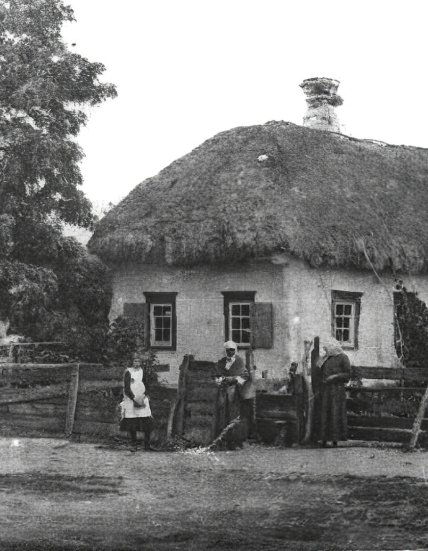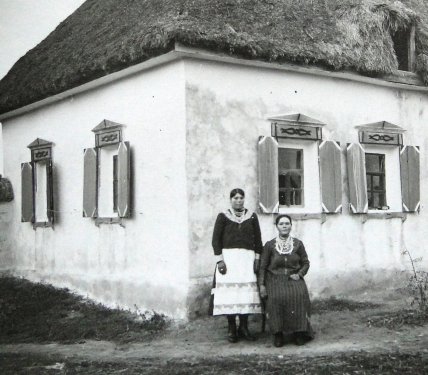You can only see this in old photographs: life in the area now known as Luhansk a century ago.
One hundred years ago, the northern part of Luhansk was part of the historical Slobozhanshchina, a region characterized by its unique way of life, culture, and traditions. This area was notable for its diverse population, primarily composed of Ukrainians, but also including Russians. The fertile lands of Slobozhanshchina were renowned for their productivity, which shaped the main activity of the inhabitants—agriculture, along with the development of livestock farming and crafts.
The daily lives of the locals, their homes, yards, and streets, captured in archival photographs from 1928, tell the story of a challenging yet culturally rich existence. These images vividly illustrate what the settlements looked like that laid the groundwork for modern Luhansk, as well as how ordinary peasants and craftsmen organized their lives back then.
 9
9
The Slobozhansky hut, the traditional dwelling of the region, was a true symbol of hard work and a love for order. The white walls of the house, adorned for holidays, reflected a careful attitude toward daily life. Clay pipes, thatched or reed roofs created a cozy atmosphere. A corner with icons was a must in the home, and various patterns decorated the walls.
 0
0
 1
1
 2
2
Agriculture was the main occupation of the Slobozhans. Locals grew grain crops, engaged in viticulture, horticulture, and tobacco cultivation. The rich lands allowed them not only to feed their own families but also to export surpluses to neighboring regions and abroad. Additionally, skilled craftsmen produced tools, pottery, clothing, and jewelry that were highly valued at fairs.
 3
3
 4
4
The communities of Slobozhanshchina were closely interconnected. Despite the presence of various ethnic groups, their traditions often intertwined. Ukrainians, who made up the majority, preserved their customs and language; however, interaction with other peoples contributed to the formation of a dialect—surzhyk, which became a linguistic feature of the region.
 5
5
 6
6
 7
7
Previously, we shared how one of the first hotels in Kharkiv did not survive the war.